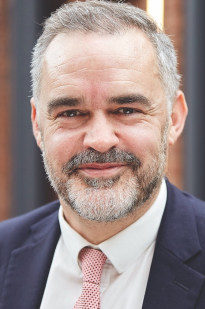Government may U-turn on pay, but no new funding
The Guardian reported that health secretary Steve Barclay had ‘privately conceded’ the need to increase the pay offer to avert ongoing industrial action by nurses and ambulance staff and prevent further reductions in performance. However the newspaper also said that the Treasury had ruled out extra cash, with any increased offer needing to be funded from the existing Department of Health and Social Care or NHS England budgets.
The news comes after a week in which ambulance staff took a day’s strike action on Wednesday and latest performance figures showed that ambulance response times for category 2 calls averaged over 90 minutes in December. Nurses are due to take two days strike action in some trusts next week.
Fourteen health unions also announced this week that they would not submit joint evidence to the NHS Pay Review Body for the 2023/24 pay round while industrial action continues.
The unions – which include Managers in Partnership (MIP) – have criticised government moves to portray the pay review body as ‘independent’ when it operates within parameters set by the government, including the government stating what it considers ‘affordable’ before the body even starts its work.
For the coming round, the unions said they will put the evidence they would normally send to the review body directly to the government. MIP chief executive Jon Restell (pictured) said this was to ‘ensure the government can’t hide from their responsibilities in the NHS’.
The unions have been angered by the government’s refusal to reconsider the pay rise for this year in the light of the rapid increase in inflation after the review body had made its recommendation. This has meant the pay rise has been outstripped by increases in the cost of living, leaving many NHS staff significantly worse off.
This led to the strikes by nurses and ambulance staff, with physiotherapists now expected to join them and junior doctors – who got just 2% in this year’s pay round – also balloting for industrial action.
Ahead of the latest reports, there was already speculation that the government was preparing to backtrack slightly. In the last few days, national media had suggested it was considering two schemes for health staff in England. One would be a one-off payment to some NHS staff – it is unclear whether all would be included – to partially compensate for the impact of inflation. The suggestion was that this would be on top of the existing offer of £1,400, which equated to higher increases for lower earners and an average pay rise of 4.8%. The additional payment however would not be carried forward to the next financial year.
The second scheme under consideration was reported to be the early payment of whatever increase is agreed for 2023/24 so it would effectively start from this month. However, it is unlikely the pay review body could conclude its deliberations before May, so staff would have had to wait several months before seeing any money.
However, these proposals looked less likely to achieve a break-through after unions in Wales this week rejected separate new proposals to give staff a one-off, non-consolidated payment.
While the latest reports suggest the government has now accepted the need to revise the pay offer, it is not clear that proposals will come in time to avert next week’s planned strike by nurses. It is also unclear how any deal could be funded from existing budgets. It is thought any new offer could cost between £2bn to £3bn – with each 1% of increased offer costing around £800m across all staff covered by the agenda for change pay framework. With less than three months of the financial year remaining, it is not obvious where the funds could be found or what the impact might be on services or planned developments
The government has until now insisted that it could not re-open talks about this year’s pay. But NHS Providers interim chief executive Saffron Cordery said this year’s pay arrangements could not be ignored. ‘It is absolutely critical that the government and the unions both come round the table and discuss pay, terms and conditions and patient safety and it is critical that they do that about this year’s pay, because that is what this dispute is about,’ she told Channel 4 news. ‘It is about this year and the years that follow that.’ She added that the service needed to find a solution ‘so we can then focus on getting those waiting lists down and getting the urgent and emergency care service back on track’.
Related content
The Institute’s annual costing conference provides the NHS with the latest developments and guidance in NHS costing.
The value masterclass shares examples of organisations and systems that have pursued a value-driven approach and the results they have achieved.